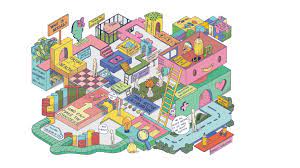Celebrating the Rich Tapestry of Global Culture

The Beauty and Diversity of Culture
Culture is a rich tapestry that weaves together the beliefs, customs, arts, and social interactions of a particular group of people. It is a reflection of our collective identity, shaping the way we see the world and how we relate to one another.
One of the most fascinating aspects of culture is its diversity. Every corner of the globe boasts its unique traditions, languages, cuisines, and art forms. From the vibrant festivals in Asia to the intricate architecture in Europe, culture manifests itself in countless ways, each more beautiful than the last.
Through culture, we gain insight into different ways of life and broaden our perspectives. It teaches us empathy, tolerance, and appreciation for our differences. By embracing diverse cultures, we create a more inclusive society where individuals can celebrate their heritage while respecting others’ traditions.
Art plays a significant role in preserving and expressing cultural identity. Literature, music, dance, and visual arts serve as vehicles for storytelling and passing down traditions from one generation to the next. They capture the essence of a culture’s values, history, and aspirations.
As we navigate an increasingly interconnected world, it becomes crucial to safeguard and promote cultural heritage. By supporting local artisans, preserving historical sites, and engaging in cross-cultural exchanges, we ensure that our global community remains enriched by its cultural mosaic.
In conclusion, culture is not merely a set of practices; it is a living testament to human creativity and resilience. Let us cherish the beauty of diversity that culture offers us and strive to build bridges that connect us across borders.
Understanding Culture: Key Questions and Definitions Explained
- What is the concept of culture?
- What is best definition of culture?
- What do you mean of cultural?
- What is a culture and example?
What is the concept of culture?
The concept of culture encompasses the intricate web of beliefs, values, traditions, customs, and practices that define a particular group of people. It is the lens through which individuals perceive the world around them and navigate their interactions within society. Culture shapes our identities, influences our behaviours, and provides a sense of belonging and shared heritage. At its core, culture is a dynamic and evolving tapestry that reflects the diversity and richness of human experience across different communities and societies.
What is best definition of culture?
Culture can be best defined as the collective expression of a group’s beliefs, values, customs, and traditions that shape their way of life. It encompasses the shared practices, languages, arts, and social norms that bind individuals together within a community. Culture not only reflects a society’s identity but also influences how its members perceive the world and interact with one another. It is a dynamic and evolving phenomenon that continuously adapts to external influences while preserving its core essence.
What do you mean of cultural?
The concept of culture encompasses the shared beliefs, values, traditions, customs, and practices that define a particular group of people. It is the lens through which individuals interpret the world around them and shapes their identities. Culture influences everything from language and cuisine to art and social norms, reflecting the unique heritage and experiences of a community. Embracing cultural diversity allows us to appreciate the richness of human expression and fosters mutual understanding among individuals from different backgrounds.
What is a culture and example?
Culture encompasses the shared beliefs, values, customs, traditions, and practices of a particular group of people. It defines how individuals within a community interact with one another and their environment. An example of culture can be seen in the Japanese tea ceremony, known as “chanoyu” or “sado.” This traditional ritual involves the preparation and presentation of matcha (powdered green tea) in a highly choreographed manner, symbolizing harmony, respect, purity, and tranquillity. The tea ceremony is not just about drinking tea but embodies profound cultural significance, reflecting the Japanese aesthetics of simplicity and mindfulness in everyday life.
Tags: appreciation, art forms, arts, aspirations, beliefs, cuisines, cultural identity, culture, customs, diversity, empathy, heritage, history, languages, social interactions, storytelling, tolerance, traditions, traditions preservation, values